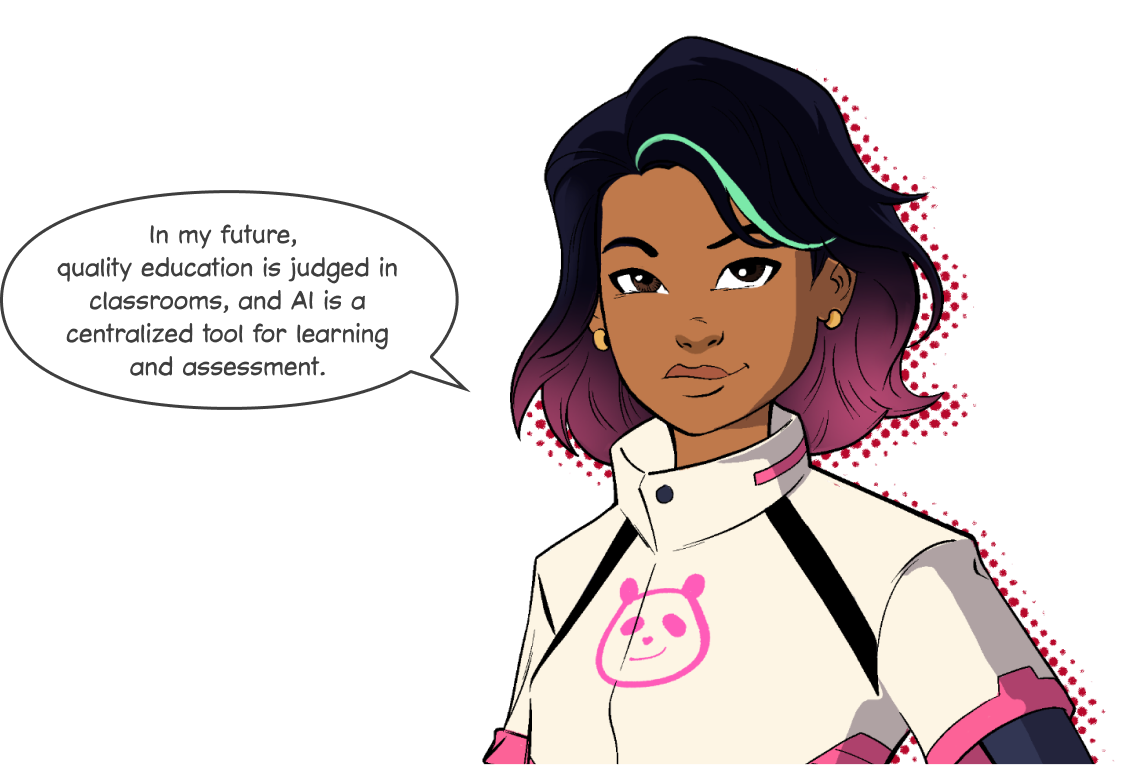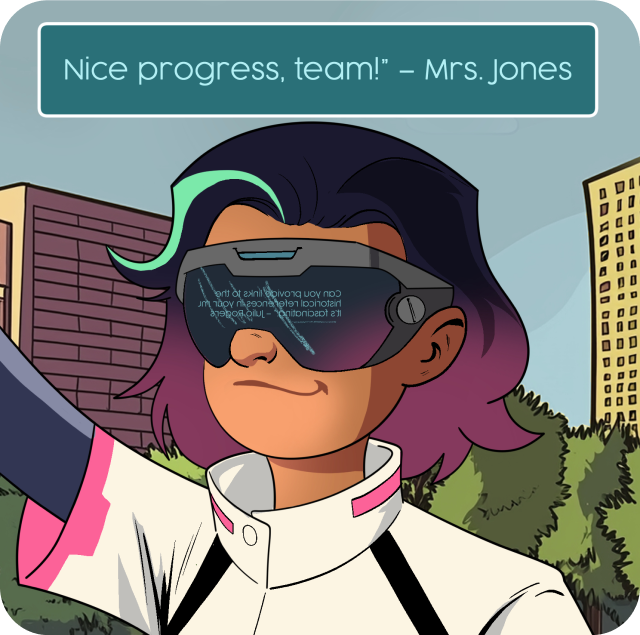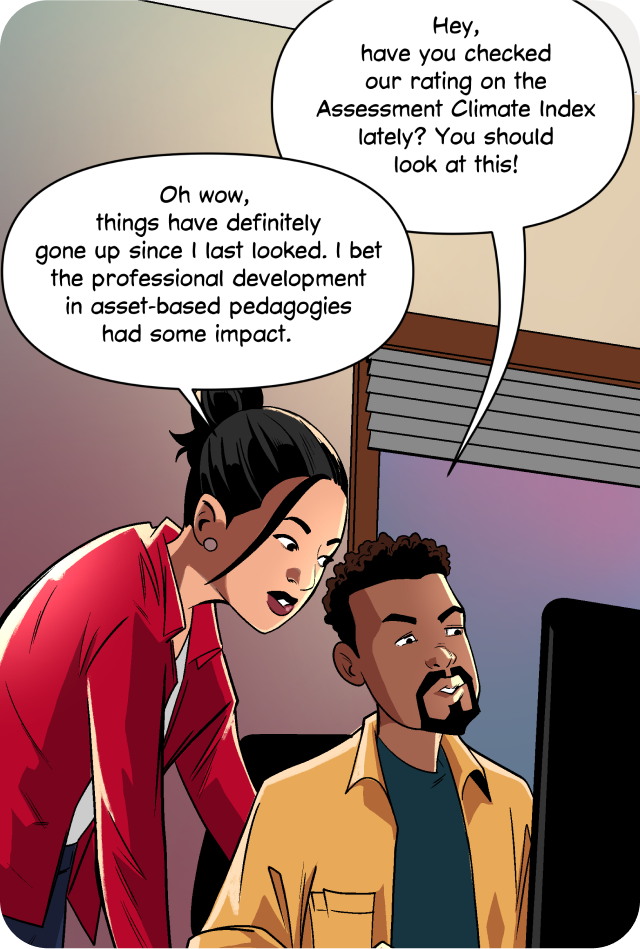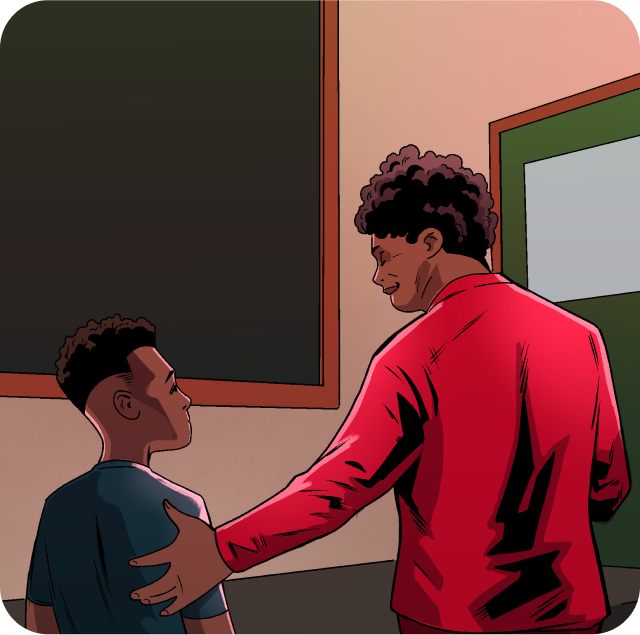We are committed to creating a future of assessment that more accurately captures the magic of learning––namely the spark of discovery that happens when educators and learners forge engaging connections, together.
The Story
It’s 2034. Educators innovate at the local level. They prioritize human development and prosocial learning to impact community wellness outcomes across the country.
After nearly 100 years of inefficiency captured through state-mandated yearly assessment systems, education officials have broad agreement that educational priorities need to shift to address widespread national fatigue with using an old system in a more dynamic world. As a means of reweaving the social fabric, there is greater emphasis on prosocial learning, which centers an approach to learning that strengthens an expanded set of core competencies. For example, learning continues to focus on high-order thinking, the role of emotion, belonging, and social development, but it also understands the impact of a dynamic learning environment core, and the cultivation of supportive social capital that learners possess across their home, school, and community contexts. Feedback is now positioned as a cornerstone for learning, as it helps learners build productive social relationships and make meaningful contributions in and beyond school. To support the new prosocial priorities, the U.S. Department of Education launched a national innovation initiative that relies on robust public-private partnerships with the educational technology sector. Student-centered learning is now widely practiced, accelerated by that sector’s commitment to authentic personalization through the heavy use of artificial intelligence. Some parents and caregivers worry that the learning options identified by some of the AI tools are not culturally relevant enough and that the AI tools rob students of the thrill of discovery.




